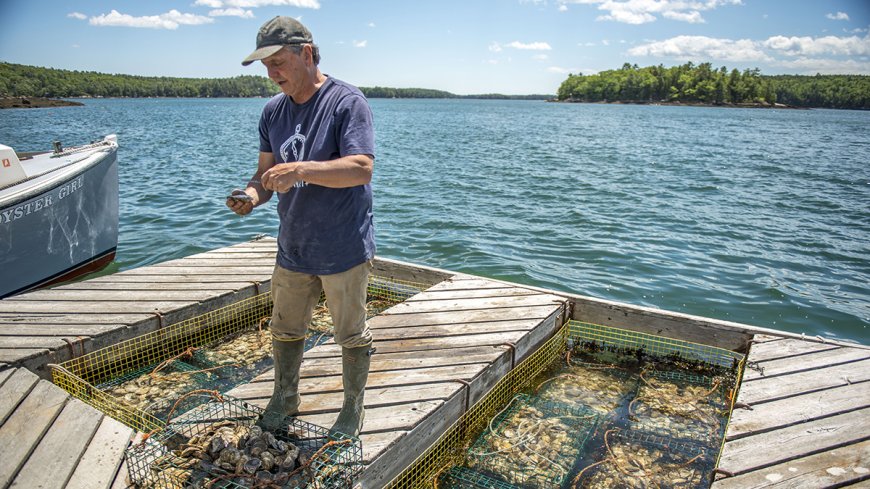Gulf of Maine's Cold Waters Delay Ocean Acidification
The Gulf of Maine's cold waters are slowing down ocean acidification due to their ability to dissolve carbon dioxide more easily. Recent research using algae records shows a historic trend of relatively low pH in surface seawater, with a slight increase over the past 40 years. This delay in ocean acidification is attributed to the warming of Gulf Stream waters. However, the region's ecosystems and economy remain vulnerable to future acidification challenges.

In the face of rising atmospheric carbon dioxide, the Gulf of Maine is vulnerable to ocean acidification due to its cold waters that dissolve carbon dioxide easily. This decrease in pH can harm ecosystems and the shellfish industry.
Scientists lacked long-term data on acidity trends in the region until now. By analyzing ocean chemistry in algae, researchers created a 100-year history of acidity in the Gulf of Maine, showing a delay in ocean acidification.
The Gulf of Maine receives water from different sources, and recent data from Maine's Casco Bay indicate increasing acidity. However, a longer time frame is needed to determine long-term trends.
Crustose coralline algae in the Gulf of Maine act as a record of past seawater carbon dioxide concentrations. Researchers reconstructed a timeline from 1920 to 2018, revealing a slight pH increase over the past 40 years.
Warming waters in the Gulf of Maine, driven by changing water masses, have delayed ocean acidification. But this buffering effect may have limits, leaving ecosystems and the economy vulnerable to acidification.
Ocean acidification poses a challenge to the Gulf of Maine's coastal economy and fisheries, alongside existing threats like disease and habitat degradation. Understanding the complex factors influencing ocean pH remains a challenge.
According to the source: eos.org.
What's Your Reaction?
 Like
0
Like
0
 Dislike
0
Dislike
0
 Love
0
Love
0
 Funny
0
Funny
0
 Angry
0
Angry
0
 Sad
0
Sad
0
 Wow
0
Wow
0





































































































































































